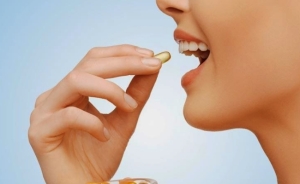There are some common skin ailments which many of us face on a daily basis. I thought this would be a good place for me to try to help explain these problems and what you can do about them to achieve better skin. The goal here is to empower everyone with the knowledge and know-how to overcome some of these problems or at least to let them know that there are treatments available out there. You just have to know where to look and this is a good place to start.
I thought we’d start by talking about acne, or pimples! Pimples, acne, zits, 青春痘, jerawat … whatever you’re used to calling it, this is a remarkably common skin problem that all of us have probably experienced at some time in our lives. At the same time, if left untreated, acne can lead to unsightly scars, diminished self-confidence and in severe cases, even depression.
How does acne occur?
Acne occurs in the presence of 4 factors:
- sebum/skin oils
- dead skin cells
- clogged pores
- bacteria
Excessive sebum production and presence of dead skin cells for a plug and can cause clogged pores. When the clogged pores lead to bulging of the hair follicle wall, this is a whitehead. A blackhead is when the plug is exposed and darkens on the surface of the skin. A pimple occurs when these blocked hair follicles become infected and inflamed
Different types of acne
There are different types of acne, and they often occur in combination. From milder to more severe:





Severity of acne can also be classified by number of acne, although this is not always easily done:
| No of acne lesions on half-face | Severity |
| 0-5 | mild |
| 6-20 | moderate |
| 21-50 | severe |
| >50 | Very severe |
So why is it that certain people have worse acne than others?
Common risk factors for acne include:
- Hormonal changes. Such changes are common in teenagers, women and girls. Hence the common phenomenon of worsening acne during ‘that time of the month’. This can also affect people using certain medications, including those containing corticosteroids, androgens or lithium.
- Family history. Genetics plays a role in acne. If both parents had acne, you’re likely to develop it, too.
- Greasy or oily substances. You may develop acne where your skin comes into contact with oily lotions and creams or with grease in a work area as pores can become clogged
- Friction or pressure on your skin. This can be caused by items such as telephones, cellphones, helmets, tight collars and backpacks.
- Stress. Stress hormones e.g. cortisol may trigger increased oil production in the skin during times of stress like exams and lack of sleep.
- Diet. Studies indicate that certain dietary factors, including dairy products and carbohydrate-rich foods — such as bread and chips — may trigger acne. Chocolate has also long been suspected of making acne worse.
How to prevent acne
- Universal skin care tips: Nothing beats the basics! Healthy eating, drinking lots of water, de-stressing, not smoking, sun protection, cleansing and moisturising are a must!
- Light acne-friendly makeup: The products that you use could actually worsen your skin condition if you don’t choose wisely. Look for “non-comedogenic” products i.e products which don’t clog the pores and cause comedones (white and blackheads). Avoid oily, greasy products with mineral oils and cocoa butter if you’re acne prone because they can cause worsen acne outbreaks. Oil-free products are preferable in this case. In all cases, lightening the makeup almost always works in helping to control breakouts.
- Change your pillow case weekly – if you don’t change your pillow case regularly, you’re basically just planting your face against built up dirt, sweat and grime for 8 hours a night. This, after spending all that time and effort to cleanse that skin thoroughly before sleep – not a good idea.
- Change your shampoo and conditioner if you’ve been developing more frequent acne outbreaks since trying that new product. Shampoos and conditioners with lots of fragrance and chemicals are a known trigger for acne especially over the forehead, neck and back
- Avoid touching your face unnecessarily to avoid transference of the oils and dirt. If you can’t help it, at least wash your hands more regularly.
- Laundry detergent residue can sometimes cause irritation to the skin and worsen acne over the neck and body; this is especially the case with detergents which have harsh chemicals and strong fragrances.
- Exercise – It’s untrue that people who exercise have more acne. In fact, exercise promotes blood flow to the skin resulting in a more radiant complexion. Also, sweating is the body’s natural way of eliminating toxins and dirt. Just remember to cleanse thoroughly after exercise!
- Clean your phone – you can only imagine how much dirt and oil is on your phone and how we don’t give that any thought when we put it up against our faces.
Quite often it is the simplest things we do that make the biggest difference.
Acne Treatment
Sometimes despite our best efforts to prevent them, the occasional acne is inevitable. For some people, it is a constant problem. As discussed earlier, acne lesions are more likely to leave scars the bigger they are and the longer they are left untreated. There are so many treatments available nowadays that I thought it would be good to help clarify what are the indications and common side effects of some of them.
Patients with mild to moderate acne normally respond quite well to milder topical medications which are available over-the-counter i.e. these are medications which you don’t need a prescription from a doctor for. Here are some common active ingredients you will find in OTC acne medication:
| Active ingredient | How it works | Possible Side Effects |
| Benzoyl Peroxide (e.g. Oxy) | kills the bacteria that cause acne, helps remove excess oil from the skin and removes dead skin cells, which can clog pores | dry skin, scaling, redness, burning and stinging, especially if you have sensitive skin |
| Salicylic acid | Unclogs pores | mild stinging and skin irritation |
| Alpha hydroxy acids (e.g. glycolic/lactic acid) | remove dead skin cells, reduce inflammation, stimulate the growth of new, smoother skin | Sun sensitivity and skin irritation |
| Sulfur | removes dead skin cells that clog pores and helps remove excess oil | Dry skin and unpleasant odour |
Here are some general guidelines for choosing and using acne products:
- Begin with benzoyl peroxide.If you’re not sure which acne product to buy, start with one that contains benzoyl peroxide. It’s effective and well-tolerated by most people. Give it a few days before expecting to see results. Check product labels for the type and amount of its active ingredient. Stronger isn’t always better with benzoyl peroxide. In some cases, a 2.5 percent product works as well as those with stronger concentrations — and with fewer side effects.
- Start with lower strength acne products.This can help minimize redness, dry skin and other skin problems. If needed, slowly — over several weeks — increase the strength of the product you use and how often you use it. This helps your skin adjust to the treatment gradually.
- Use products with different active ingredients to treat stubborn acne.Acne ingredients work in different ways, so you may find it helpful to use varying products and ingredients to treat stubborn acne. Apply one product in the morning and a different one at night to prevent skin irritation.
- Be patient.Treating acne with acne products takes time and patience. It may take two or three months of daily use of an acne product to see results. And acne may look worse before it gets better.
- Experiment with what works.You may need to try different products with varying active ingredients before you find what works for you.
Moderate-severe acne (or if your acne fails to respond to OTC medications after 2-3 months) – you should see a doctor as you could be a candidate for prescribed medications/therapies to help control your acne.
| Topical preparation | How it works | Possible Side Effects |
| Retinoids e.g. tretinoin, adapalene | Prevents clogged pores, decreases inflammation and minimises scarring | Skin dryness and irritation |
| Antibiotics e.g. Clindamycin | killing excess skin bacteria and reducing redness | Skin dryness and irritation |
Tips on retinol/retinoid use:
- Retinoids can lead to dryness and irritation. You want to use the strongest retinoid possible for acne, but the stronger the retinoid, the more likely dryness is going to occur. Facial moisturizers before and after use of the retinoid, can help with the dryness.
- Every other day use or every 2-3 day use can also be utilized if the retinoid you have is too drying despite using a moisturizer.
- You may need to initially use an over the counter retinol if prescription strength is too strong. Report these symptoms to your prescribing doctor so he/she can advise you accordingly
- The longer you use these medications the better you will be able to tolerate them and avoid dryness.
- If you are prescribed a retinoid cream from above that you can tolerate, it would be wise to stay on that medication long term even if your acne improves do not stop this medication.
If you are unable to tolerate topical preparations or if they fail to control your acne, don’t worry, there is still hope! Oral acne medications are the next step.
| Oral Medication | How it works | Possible Side Effects |
| Antibiotics e.g. doxycycline
|
Reduces bacteria and controls inflammation | Gastrointestinal upset, photosensitivity. (Note: can also cause fetal/growth abnormalities in pregnancy) |
| Combined oral contraceptives e.g. Yaz | Regulates hormones which contribute to acne | Nausea, menstrual irregularities, high blood pressure, blood clots |
| Anti-androgen agent e.g. spironolactone | Helps block possible sebum production inducing effect of hormones | Breast tenderness, electrolyte disturbances |
| Isotretinoin e.g. Accutane | Reduces skin sebum production | Birth defects, photosensitivity, severe skin reactions, dry eyes, mood changes, anxiety, visual changes |
Note that the possible side effects mentioned in this article are not exhaustive. Always read the medication label in detail and consult with your physician for further advice on possible adverse reaction with all acne medications.
| Treatment | How it works | Possible Side Effects |
| Chemical Peel | Exfoliates and unclogs pores | Redness, burns, post-inflammatory hyperpigmentaion |
| Lasers (including Intense Pulsed Light) | Regulating sebum control, kills bacteria, controls inflammation | Burns, post-inflammatory hyperpigmentation |


There are many different types of acne treatments on the market and most people actually respond quite well to over-the-counter products. Nonetheless if you’re dealing with stubborn or severe acne, then it could be time to see a doctor who can help you figure out the next step in your fight against acne. This is because acne medications come with their own possible side effects and normally, the stronger and more effective the medication, the harsher the possible side effects as well.
I hope the information here will help you towards having better, acne-free skin! In my next posting, I shall be talking about acne scars! So please look out for that.





